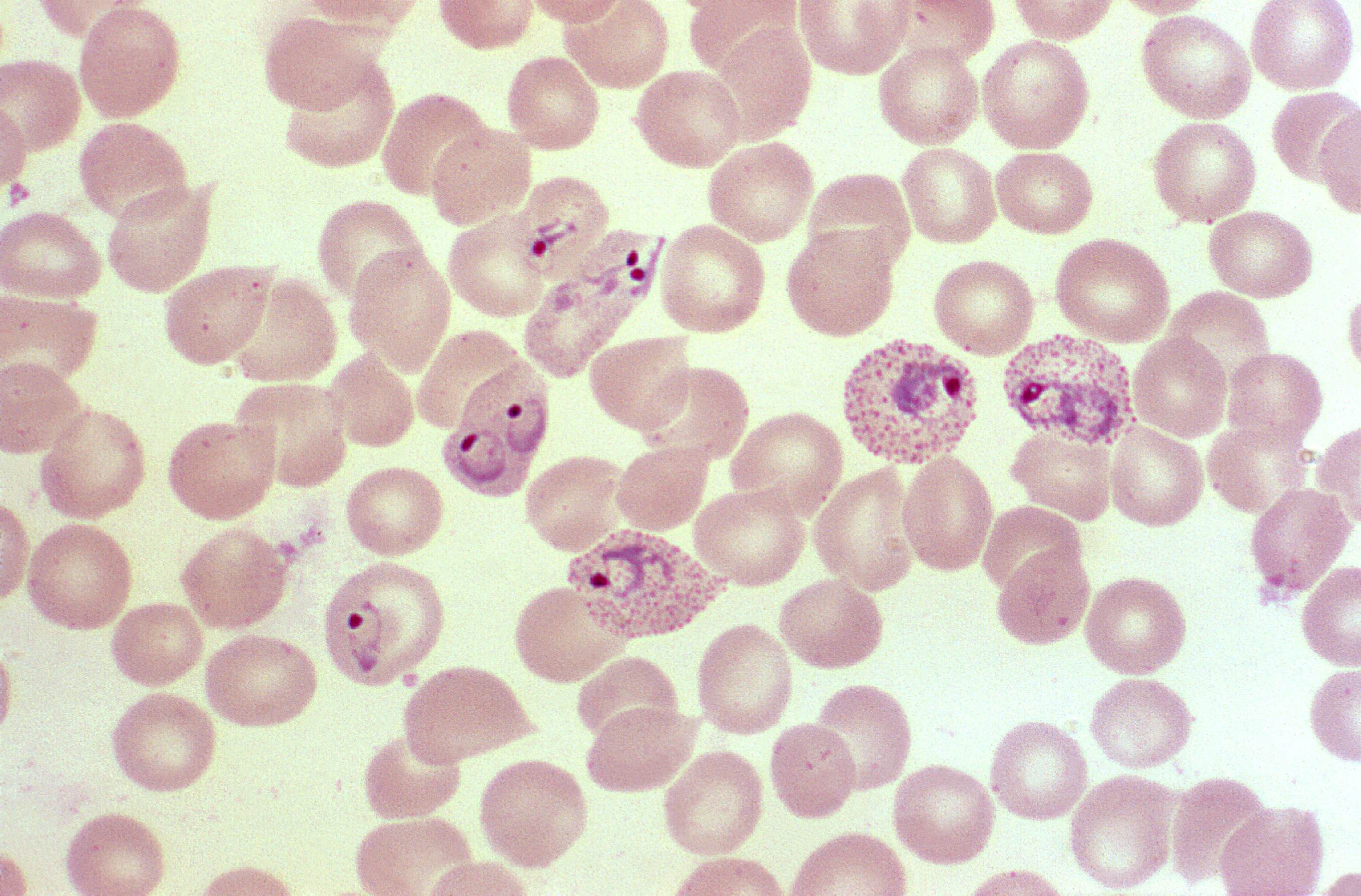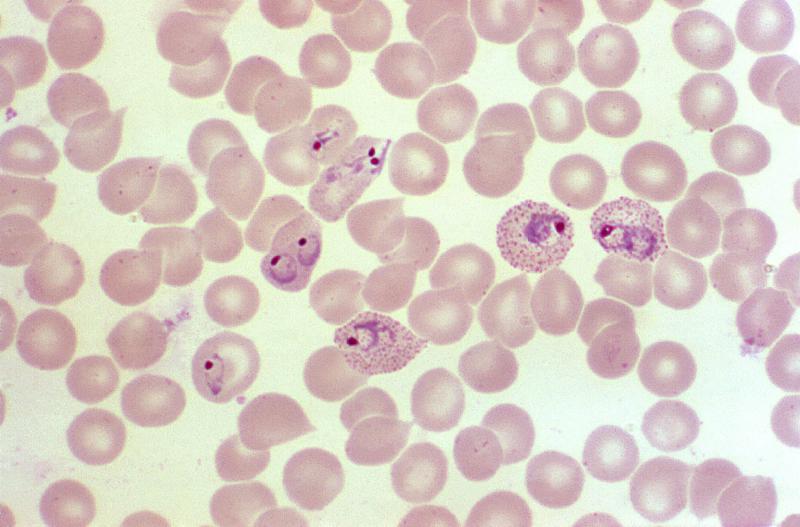Greetings loved ones, let’s take a journey (Katy Perry, 2010)
Today we are going to have a little look at a very sneaky little pathogen called Plasmodium falciparum or as you are more likely to know it — malaria.

Whilst some of those look more like puffer fish — they are in fact cells infected with malaria.
Now malaria is a very interesting parasite because it does some very snazzy things to try and get out of being found out by your immune system.
So first things first — the parasite has a whole bunch of different life cycle stages. This starts off inside the mosquito (interestingly the mosquito’s immune system also isn’t so pleased the malaria is there but no one talks about that so much poor mosquitoes )
yeah nah sympathy is difficult.
To cut a long story short — the parasite forms a cyst inside the belly of the mosquito which releases little motile zygotes (zygote is the fancy name for what you get when an egg cell meets a sperm cell ) called sporozoites. These migrate to the salivary glands of the mosquito ready to be injected.
Now the mosquito bites and injects these little sporozoites into a human bean. This immediately sets off the alarm bells of your immune system which starts freaking out and it’s all
But these little sporozoites do not hang around to wait for your immune system to kick in. They head STRAIGHT for your liver and can get there in minutes.
It is RAPID.
Now what they do is very cunning.

They yeet themselves inside the cells of your liver (called hepatocytes ) and by becoming intracellular they can’t be found by most of the components of your immune system. We think there might be some natural killer cells (they’re one of your immune cell types) in your body that can track the malaria down but it’s not fully understood yet.
Now once the parasite is in the liver it starts going through asexual replication to make a big ol" bundle of malaria called a schizont (excellent Scrabble word).
This takes about two weeks which is just about how long it takes your body to prepare lots of nice antibodies that can ATTACK the sporozoites. Remember that the specific responses of your immune system take a bit longer than the more general defence ones (the innate responses ) that are always drifting around in your bod.
SO these parasites all exit the liver at once in one big rush. Now I bet you’re thinking.
Good bloody timing bod — just came up with all those fantastic antibodies. That malaria parasite won’t know what’s hit it
Ummm not so much. Whilst the parasite was chilling in that schizont it matured into something called a merozoite which needs TOTALLY DIFFERENT ANTIBODIES.
So none of the antibodies that your bod has spent the last two weeks making actually work.
Crumbs.
So instead the merozoites move into your red blood cells to do their next life cycle stage. Now this is problematic, because your red blood cells are the only cells in your body that can’t show other cells in your body that there is a pathogen inside.
All the other cells in your body have little protein complexes on the outside that can be used as little advertising signs saying PATHOGEN IN HERE — PLS SEND HELP . Unfortunately red blood cells do not have this.
But the reason they don’t is because your red blood cells get cleaned up a lot. That’s the job of your spleen (the totally pointless organ that everyone forgets isn’t actually so pointless!!). So yay! We have defeated malaria because all those grotty infected red blood cells will get swept along to the spleen and will be cleaned out.
Mmmmmm not so much.
The parasite is smart again and instead puts some delicious membrane proteins on the outside of the red blood cells that make them really sticky. They stick to each other, they stick to the walls of the blood vessels, they stick to EVERYTHING.
So this means the blood cells can’t get to the spleen and the parasite can happily sit there doing its thang.
This is a big problem, because one of this parasite’s favourite places to be is in the brain. When it starts causing these blockages you can get oxygen starvation in the brain tissue. And that’s called cerebral malaria.
Not nice. Not nice at all.
BUT there’s a good thing about these membrane proteins. Your immune system can use them instead of the protein complexes used by other cells. These membrane proteins are essentially their own little advertising sign saying PATHOGEN IN HERE — PLS SEND HELP . Yayy!
Antibodies can bind to those proteins and pack them off the spleen to be cleaned. What a win.
Hmmmmmmm not quite.
You see these sneaky little parasites actually have 50-60 different types of membrane protein that they can use
50-60 varieties did you say?…
If anyone would like to join my new conspiracy theory group that Heinz is secretly spreading malaria in tins of baked beans let me know and I"ll add you to our WhatsApp group chat.
Anyways — they can change this protein every 7-10 days so just as your body makes a new antibody BAM the parasite changes. This is not ideal. And it means that whilst your immune system can control the number of parasites in the body, total elimination is extremely difficult
Sorry there’s not really a happy ending on this one If Cheryl Cole survived it — it can’t be that bad?
Hope you enjoyed that dramatic foray into the world of Plasmodium falciparum.
See you next time.
Flora xxx


